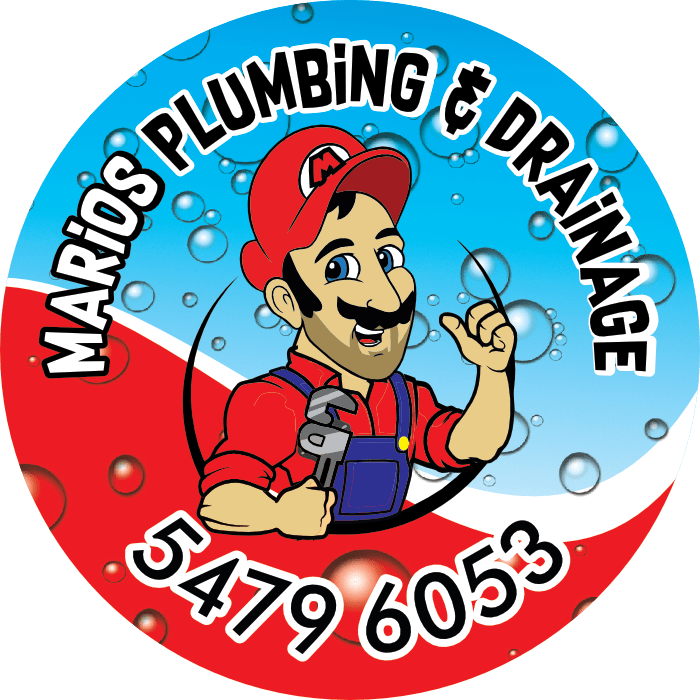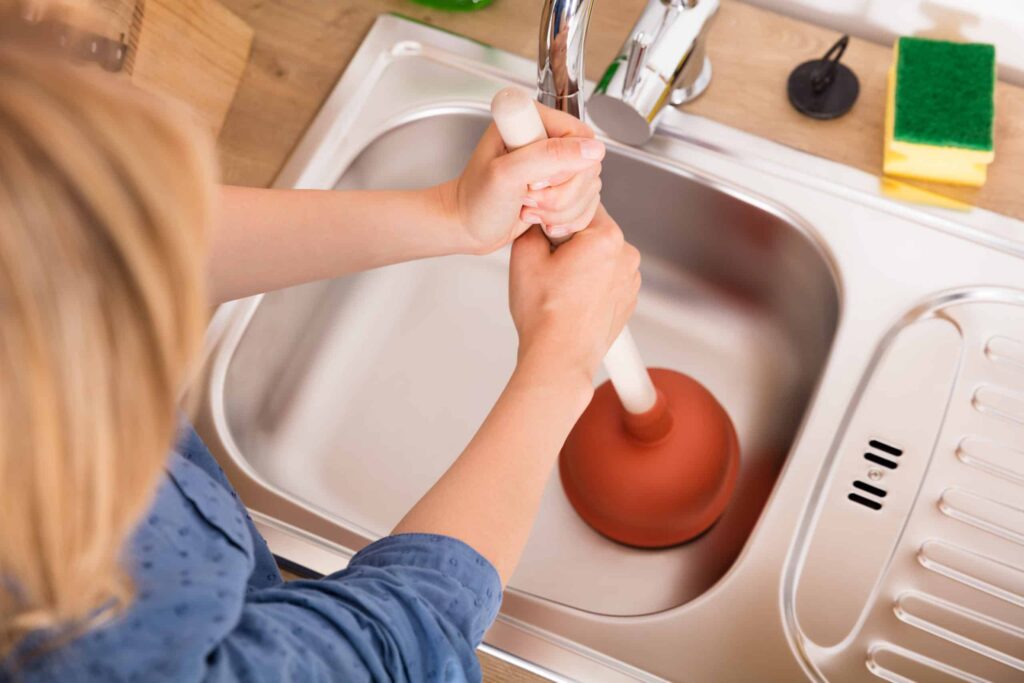Ever had a sink full of dirty water that just won’t budge? Yeah, we’ve all been there. It’s frustrating, smelly, and can really throw a spanner in your daily routine. But before you reach for those harsh chemicals or call in a pricey plumber, let’s chat about some smart, safe ways to get that water flowing again without destroying your pipes.
Why Your Drains Get Clogged
First things first, let’s talk about why your drains might be acting up. Usually, it’s one of these culprits:
- Food bits and grease: These can build up in your kitchen sink’s P-trap.
- Hair and soap scum: The dynamic duo that loves to clog bathroom drains.
- Tree roots: They can sneak into your sewer lines and cause blockages.
- Freezing temps: In winter, pipes can expand and lead to clogs.
Safe and Smart Ways to Unclog Your Drain
Now, let’s dive into some nifty tricks to get your drains flowing freely again:
1. The Good Old Plunger
Don’t underestimate this bathroom staple. Here’s how to use it like a pro:
- Take off the drain cover.
- Put the plunger cup over the drain.
- Push down to make a good seal.
- Pump up and down quickly about 5-6 times.
- Pull back and see if the water drains. If not, repeat.
2. The Wire Hanger Hack
Got an old wire hanger lying around? Perfect! Here’s what to do:
- Straighten out the hanger.
- Bend one end into a small hook.
- Remove the drain cover.
- Push the wire down the drain until you feel resistance.
- Twist it around a few times, then slowly pull it out.
3. The Baking Soda and Vinegar Volcano
Remember those science fair volcanoes? This method works on the same principle:
- Pour a cup of baking soda down the drain.
- Follow it with a cup of vinegar.
- Let it fizz for 20-30 minutes.
- Flush with hot water for a minute.
4. The Drain Snake
For those stubborn clogs, a drain snake can be a lifesaver:
- Remove the sink’s pop-up assembly.
- Gently feed the wire into the drain.
- Turn the handle to push it further in.
- Pull it back out, bringing the clog with it.
5. Boiling Water Blast
Sometimes, the simplest solution is the best:
- Boil a full kettle of water.
- Carefully pour it down the drain in stages.
- Wait a few seconds between each pour.
6. Salt and Boiling Water
Add a bit of grit to your boiling water method:
- Pour 1/2 cup of table salt down the drain.
- Follow with boiling water.
- The salt acts as a natural scouring agent.
7. Dish Soap for Greasy Clogs
For those kitchen sink blockages:
- Squirt a good amount of dish soap down the drain.
- Follow with boiling water.
- The soap helps break down greasy buildup.
Keeping Your Drains Happy in the Long Run
Prevention is better than cure, right? Here are some tips to keep those clogs at bay:
- Grease goes in the bin, not down the sink.
- Use a drain catcher to trap hair and food bits.
- Pour boiling water down your drains weekly.
- Give your drains a monthly baking soda and vinegar treatment.
When to Wave the White Flag
Sometimes, you’ve got to know when to call in the cavalry. If you’ve tried these methods and your drain’s still not budging, it might be time to ring a plumber. They’ve got the heavy-duty gear and know-how to tackle even the toughest clogs.
A Real-Life Drain Drama from Down Under
Let me tell you about my mate Dave from Brisbane. He’s a bit of a DIY enthusiast, always keen to fix things himself. One day, his kitchen sink decided to throw a wobbly. Water was backing up faster than he could say “G’day.”
Dave tried everything – plunging, boiling water, even that baking soda and vinegar trick. Nothing worked. He was about to call a plumber when his neighbour suggested using a drain snake.
After a bit of fiddling (and a few choice words), Dave managed to pull out what looked like half the hair in Queensland, mixed with enough grease to fry a dozen schnitzels. Turns out, his teenage daughter had been rinsing her hair dye down the sink, and his wife had been pouring cooking oil down there too.
Dave’s drain saga taught him two things: always use a drain catcher, and never underestimate the power of a good drain snake. Now, he’s the go-to guy on his street for drain advice. Who knew a clogged sink could turn you into a local celebrity?
The Green Side of Drain Clearing
Here’s something to think about – those harsh chemical drain cleaners aren’t just bad for your pipes; they’re not great for our environment either. When you use natural methods like baking soda and vinegar, or mechanical ones like plungers and drain snakes, you’re doing your bit for the planet too. It’s a win-win!
What’s Next in the World of Drains?
Believe it or not, drain technology is evolving. We’re seeing things like:
- Smart pipe systems that can detect clogs before they happen.
- Eco-friendly, enzyme-based drain cleaners that eat through organic matter.
- Advanced plumbing designs that reduce the likelihood of clogs forming.
Who knows? In a few years, we might have robots crawling through our pipes, keeping them spotless!
Your Burning Questions Answered
Got questions? We’ve got answers!
Q: Can I use Coca-Cola to unclog my drain?
A: While some swear by it, it’s not the most effective method. The phosphoric acid in Coke can help break down some clogs, but you’re better off sticking to the methods we’ve discussed.
Q: Is it okay to use multiple unclogging methods at once?
A: It’s best to try one method at a time. Mixing different techniques or chemicals can sometimes create harmful reactions or damage your pipes.
Q: How often should I clean my drains to prevent clogs?
A: A good rule of thumb is to give your drains some TLC once a month. A simple flush with boiling water or a baking soda and vinegar treatment can work wonders.
Q: Are those store-bought drain snakes any good?
A: They can be helpful for minor clogs, especially in sinks. However, for more serious blockages or in main sewer lines, it’s best to call a professional.
Q: My drain smells bad even when it’s not clogged. What’s going on?
A: This could be due to bacteria buildup in your pipes. Try the baking soda and vinegar method, followed by a hot water flush. If the smell persists, you might have a more serious plumbing issue.
Q: Can tree roots really damage my sewer line?
A: Absolutely! Tree roots are drawn to the water and nutrients in sewer lines. They can infiltrate through small cracks and grow, causing major blockages and pipe damage.
Wrapping It Up
There you have it, folks – your guide to becoming a drain-unclogging wizard! Remember, the key is to act fast when you notice a slow drain, use these gentle methods first, and know when it’s time to call in the pros. With these tips up your sleeve, you’ll be keeping your pipes happy and your wallet even happier. Here’s to clear drains and stress-free plumbing!


